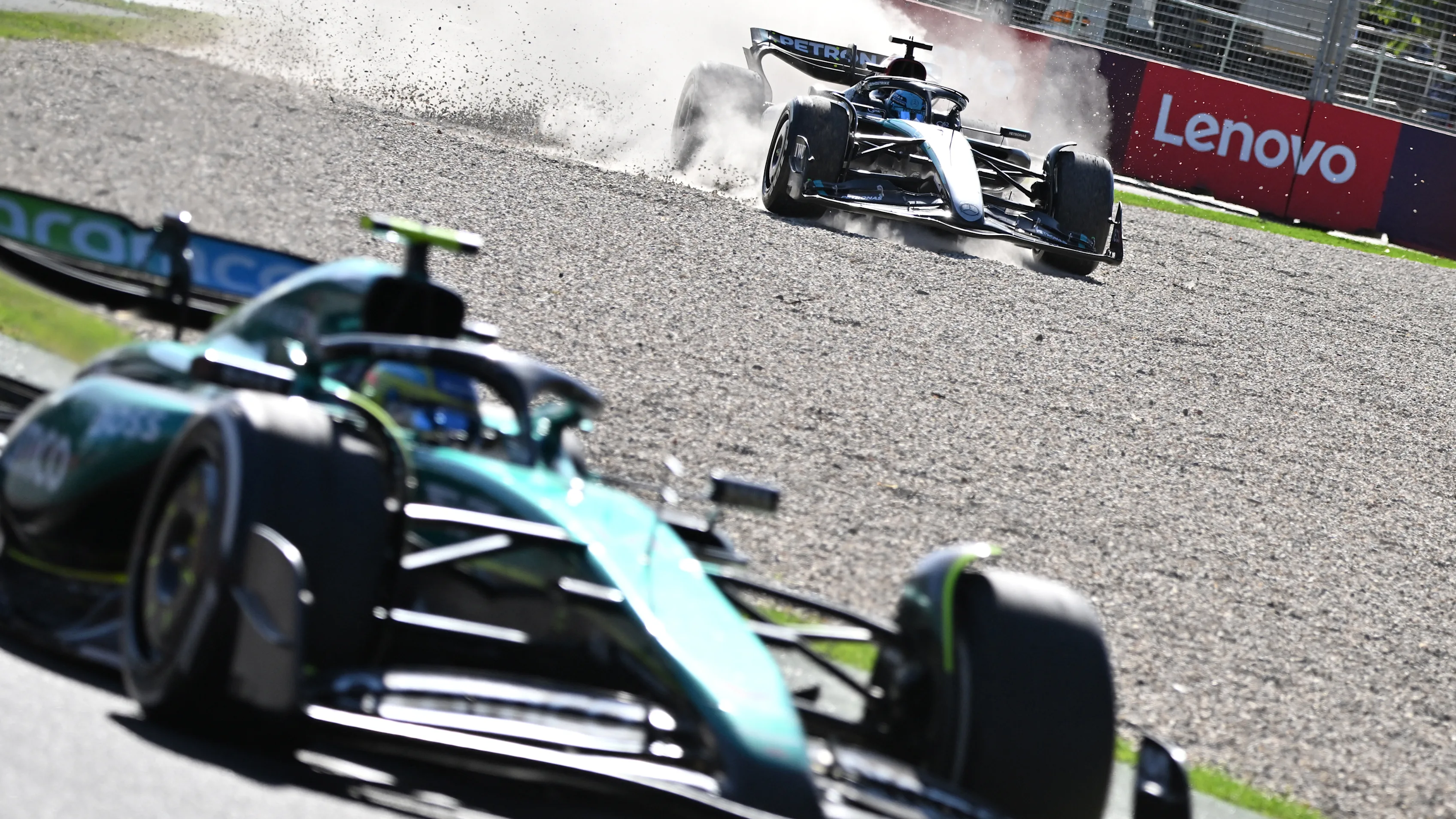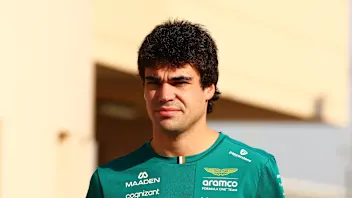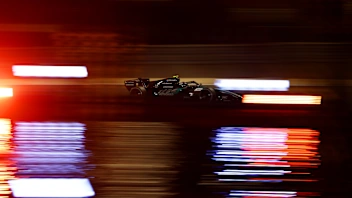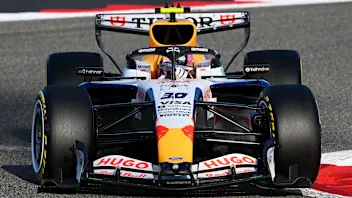EXPLAINED: He made no contact with Russell – so why did Alonso cop a 20-second penalty for his part in the crash?


Fernando Alonso has been hit with a post-race drive through penalty – converted to 20 seconds being adding to his race time – for what the stewards have deemed “potentially dangerous” driving prior to George Russell’s crash out of the Australian Grand Prix on the final lap. There was no contact between the two, so what was the story behind the penalty? Let’s delve in to break it down…
Russell crashes on the penultimate lap
As the 58-lap Australian Grand Prix entered into its final stages, Russell made a late pit stop on Lap 46 to bolt on a fresh set of tyres. This enabled him to start closing the gap to Alonso up ahead in P6.
WATCH: Russell dramatically crashes out while chasing Alonso late on in Australia
The Mercedes continued to cut the gap over the laps that followed and, having DRS as the race headed into Lap 54, he was able to close further but was unable to find a way past Alonso.
On Lap 57, Russell was just half a second behind Alonso as they approached Turn 6. After getting near to the seemingly slower-moving Aston Martin, Russell lost control of his car and hit the barriers, causing his heavily damaged W15 to end up on its side on the racing line.
Following the race, it was confirmed that Russell and Alonso had both been summoned to the stewards over the incident, with Alonso subsequently being handed the aforementioned time penalty along with three penalty points.
What the stewards said…
At 1948 local time, the stewards issued their verdict after hearing from the drivers and their team representatives as well as extensively reviewing the situation that occurred prior to the crash.
Citing a breach of Article 33.4 of the Sporting Regulations as the reason for the infringement, the stewards explained that Alonso had stated that he “intended to approach Turn 6 differently, lifting earlier, and with less speed into the corner, to get a better exit”.
However, Russell said that “from his perspective, Alonso’s manoeuvre was erratic, took him by surprise and caused him to close distance unusually fast, and with the resulting lower downforce at the apex of the corner, he lost control and crashed at the exit of the corner”.
The stewards went on to state that telemetry showed Alonso lifted “slightly more than 100m earlier than he ever had going into that corner during the race”, as well as braking “very slightly at a point that he did not usually brake (although the amount of brake was so slight that it was not the main reason for his car slowing)” before downshifting at a different point to usual.
He then upshifted again and accelerated to the corner before lifting again to make the corner. Alonso explained that his plan was to slow earlier but that he had got it "slightly wrong" and “had to take extra steps to get back up to speed”, but the stewards said that this manoeuvre had “created a considerable and unusual closing speed between the cars”.
The stewards concluded that they did not have “sufficient information to determine whether Alonso’s manoeuvre was intended to cause Russell problems, or whether, as he stated to the stewards, that he simply was trying to get a better exit” but that, “whatever intent”, he had driven in a way that was “potentially dangerous” given the high-speed nature of that point of the track.
What is the effect on the classification?
In issuing Alonso’s penalty, the stewards referenced that the penalty guidelines – including for this breach – have been reset and increased to a baseline of a 10s penalty, while a drive through penalty may be considered in “some aggravating circumstances”.
READ MORE: Hamilton brands Melbourne weekend ‘a real struggle’ even before Lap 17 retirement
“In this case we consider that Alonso affirmatively choosing to perform an unusual manoeuvre at this point to be an aggravating circumstance, as opposed to a simple mistake,” they added, resulting in a drive through penalty being given which was then converted to 20 seconds being added to Alonso’s time.
Alonso had crossed the line in P6, so the addition of 20 seconds has moved him down the order to P8. This promotes his team mate Lance Stroll to P6 and Yuki Tsunoda to P7.
The change in the classification also drops Aston Martin to being one point behind Mercedes in the constructors' standings, with the Silver Arrows in fourth place ahead of Aston in fifth.
Can Aston Martin appeal the decision?
As stated by the stewards, competitors have the right to appeal “certain decisions” and “within the applicable time limits”.
READ MORE: Verstappen explains 'really weird' cause of early retirement from Australian Grand Prix
This means that Aston Martin have the right to appeal, should they submit this within the given time limit. In order to be successful in appealing, a team usually has to present significant new evidence that was previously unavailable to the stewards.
Next Up
Related Articles
 Doohan excited for ‘fresh start’ as Haas reserve
Doohan excited for ‘fresh start’ as Haas reserve Stroll claims Aston are ‘four-and-a-half seconds’ off pace
Stroll claims Aston are ‘four-and-a-half seconds’ off pace Antonelli and Mercedes top final day of first Bahrain test
Antonelli and Mercedes top final day of first Bahrain test Norris pleased with ‘good learning’ in Bahrain
Norris pleased with ‘good learning’ in Bahrain 'Mercedes hiding a massive amount' – Leclerc
'Mercedes hiding a massive amount' – Leclerc Your tech questions answered from the first Bahrain test
Your tech questions answered from the first Bahrain test